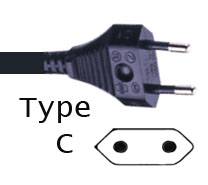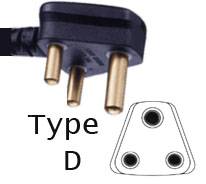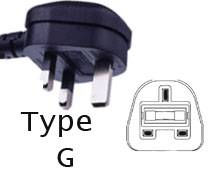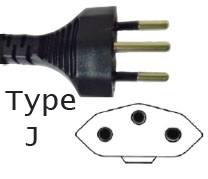Ultimate Jordan Travel Guide
Destinations
Best time to go
The best time to visit Jordan is during the spring (March to May) and autumn (September to November) when the weather is pleasant, and outdoor activities are enjoyable. Summers (June to August) can be scorching hot, while winters (December to February) are mild but can be rainy.
Average Temperature By Month
January: 10°C (50°F)
February: 11°C (52°F)
March: 13°C (55°F)
April: 18°C (64°F)
May: 22°C (72°F)
June: 25°C (77°F)
July: 27°C (81°F)
August: 27°C (81°F)
September: 25°C (77°F)
October: 21°C (70°F)
November: 16°C (61°F)
December: 12°C (54°F)
What To Expect
Time Zone:
Jordan Standard Time (JST), UTC+3.
Currency:
The currency of Jordan is the Jordanian Dinar (JOD). Credit cards are widely accepted in major cities and tourist areas, but it's advisable to carry cash for smaller establishments and rural areas.
Language:
Arabic is the official language of Jordan, but English is widely spoken, especially in tourist areas, hotels, and restaurants.
Airport:
Queen Alia International Airport (AMM) in Amman is the main international airport in Jordan, serving as the primary gateway for international travelers.
How To Get Around
Taxis: Taxis are readily available in Jordan, and most journeys within cities are done via metered taxis. Negotiate fares for longer trips or use ride-hailing apps like Uber or Careem.
Public Buses: Public buses operate between major cities and towns, offering an affordable option for intercity travel.
Rental Cars: Renting a car is a popular choice for exploring Jordan, with well-maintained roads and the flexibility to visit remote areas. However, driving in cities can be chaotic, so be cautious.
Private Drivers: Hiring a private driver or joining a guided tour is a convenient option for exploring Jordan’s attractions, especially if you prefer not to drive.
Average Temperature By Month:
January: 10°C (50°F)
February: 11°C (52°F)
March: 13°C (55°F)
April: 18°C (64°F)
May: 22°C (72°F)
June: 25°C (77°F)
July: 27°C (81°F)
August: 27°C (81°F)
September: 25°C (77°F)
October: 21°C (70°F)
November: 16°C (61°F)
December: 12°C (54°F)
Plugs:
Jordan uses Type C, D, F, and G electrical plugs, with a standard voltage of 230V and a frequency of 50Hz.
VPN:
Using a VPN is advisable for secure internet browsing, especially when accessing public Wi-Fi networks.
Safety:
Jordan is considered relatively safe for travelers, with low crime rates and a stable political environment. However, it's essential to exercise standard precautions, such as safeguarding belongings and staying informed about local conditions.
Credit Cards and Banks
Credit Cards: Credit cards are accepted in many businesses, hotels, and restaurants in Jordan, especially in urban areas and tourist destinations like Amman and Petra. Visa and MasterCard are the most commonly accepted cards, followed by American Express and Diners Club. However, it’s recommended to carry some cash, especially when traveling to more remote areas or smaller establishments.
Debit Cards: Debit cards are commonly used in Jordan for everyday transactions and ATM withdrawals. Most banks in Jordan issue debit cards to their customers, which are typically equipped with chip-and-PIN technology for security. Informing your bank of your travel plans is advisable to ensure uninterrupted card usage abroad and to check for potential foreign transaction fees.
ATMs: ATMs are readily available in major cities and tourist areas in Jordan. They allow for cash withdrawals in the local currency, Jordanian Dinar (JOD). Jordanian banks may charge minimal fees for ATM withdrawals, and foreign banks may impose additional fees for international transactions. Using ATMs affiliated with major banks is recommended for security.
Currency Exchange: The official currency of Jordan is the Jordanian Dinar (JOD). It’s advisable to exchange your currency to Jordanian Dinars upon arrival. Foreign currencies can be exchanged at banks, currency exchange offices, some hotels, and at airports. US dollars are widely accepted for exchange, especially in tourist areas.
Banks: Jordan has several commercial banks serving its population. Some of the major banks in Jordan include Arab Bank, Jordan Kuwait Bank, Bank al Etihad, and Housing Bank for Trade and Finance. These banks offer various financial services, including current accounts, savings accounts, loans, and investment products. Many banks also provide online banking services and have extensive branch networks.
Traveler’s Checks: Traveler’s checks are becoming less common worldwide, including in Jordan. While some banks may still cash traveler’s checks, they are not as widely accepted as they once were. It’s recommended to carry cash or use alternative payment methods such as credit/debit cards or ATMs for transactions.
Tips for Banking in Jordan:
- Notify your bank before traveling to Jordan to inform them of your travel plans.
- Keep your PIN and card information secure, especially when using ATMs in crowded tourist areas.
- Familiarize yourself with the current exchange rate to ensure fair transactions when exchanging currency.
- Carry a mix of cash and cards for flexibility, but avoid carrying large amounts of cash for security reasons.
Understanding the banking system in Jordan can help ensure a smooth and convenient financial experience during your travels in the country.
Locations
TRAVEL FACTS
US State Dept Travel Advisory
The US Department of State currently recommends US citizens Exercise increased caution in Jordan due to terrorism. Some areas have increased risk.
https://travel.state.gov/content/travel/en/traveladvisories/traveladvisories.html
Passport/Visa Requirements
For the latest passport and visa requirements for this country, please consult the U.S. State Department’s “Learn About Your Destination” search tool, available through the link below.
US Embassy/Consulate
[962] (6) 590-6000; US Embassy in Amman, Abdoun, Al-Umawyeen St., Amman – Jordan; Amman-ACS@state.gov; https://jo.usembassy.gov/
LGBTQIA+ Travelers
Telephone Code
962
Local Emergency Phone
Ambulance: 191; Fire: 193; Police: 192
Vaccinations
The CDC and WHO recommend the following vaccinations for Jordan: hepatitis A, hepatitis B, typhoid, yellow fever, rabies, anthrax, meningitis, polio, measles, mumps and rubella (MMR), Tdap (tetanus, diphtheria and pertussis), chickenpox, shingles, pneumonia, influenza, and COVID-19.
Climate
Mostly arid desert; rainy season in west (November to April)
Currency (Code)
Jordanian dinars (JOD)
Electricity/Voltage/Plug Type(s)
230 V / 50 Hz / plug types(s): C, D, F, G, J





Major Languages
Arabic, English (widely understood among upper and middle classes)
Major Religions
Muslim (predominantly Sunni), Christian (majority Greek Orthodox), Buddhist, Hindu
Time Difference
UTC+2 (7 hours ahead of Washington, DC, during Standard Time); daylight saving time: +1hr, begins last Friday in March, ends last Friday in October
Potable Water
Yes, but some opt for bottled water
International Driving Permit
Suggested
Road Driving Side
Right
Tourist Destinations
Amman; Petra; Al-Maghtas; Jerash; Dead Sea; Mujib Nature Reserve
Major Sports
Soccer, rugby, basketball, handball, volleyball
Cultural Practices
Handshakes are very common in Jordan, even in less formal interactions. Don’t be surprised if even casual contact includes a handshake.
Tipping Guidelines
Tipping is not expected, but it is always appreciated. Leaving 10% at a restaurant is sufficient. For bellhops and hotel maids, around $2 (USD) per day is considered appropriate.
Souvenirs
Decorated sand bottles, hand woven rugs, water pipe musical instruments, kefiya headscarves, pottery, camel themed items
Traditional Cuisine
Mansaf — a dish made of lamb cooked in a sauce of fermented dried yogurt and served with rice or bulgur
Please visit the following links to find further information about your desired destination.
World Health Organization (WHO) – To learn what vaccines and health precautions to take while visiting your destination.
US State Dept Travel Information – Overall information about foreign travel for US citizens.
To obtain an international driving permit (IDP). Only two organizations in the US issue IDPs:
American Automobile Association (AAA) and American Automobile Touring Alliance (AATA)
How to get help in an emergency?
Contact the nearest US embassy or consulate, or call one of these numbers:
from the US or Canada – 1-888-407-4747 or from Overseas – +1 202-501-4444
Central Intelligence Agency.
The World Factbook.
/the-world-factbook
(May 8, 2024)



